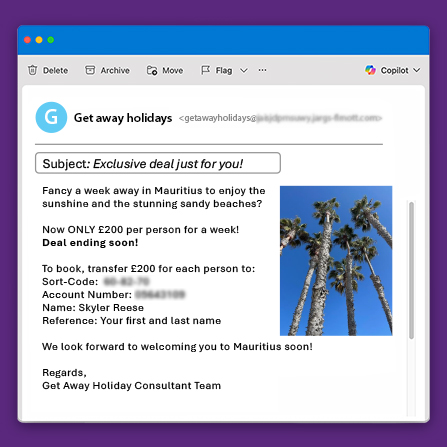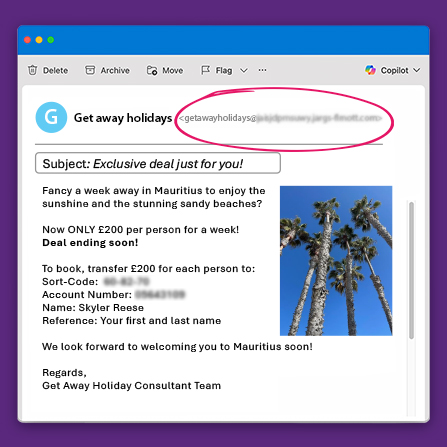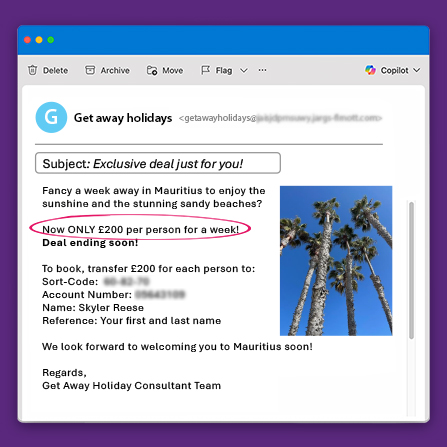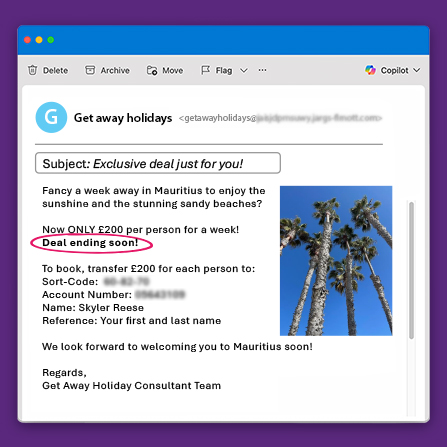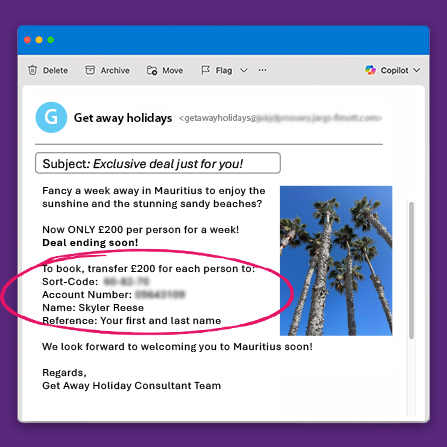On this page
Scam email example
Click through the five steps below to see tactics commonly used in email scams.
1. Spotting the signs of a scam email
Click through the points below to learn what to look for when you get a suspicious email.
2. Fake email address
Look for differences in the email address compared to the organisation it's pretending to come from.
3. Too good to be true
If an offer feels too good to be true, it's likely to be a scam.
4. Pressure tactics
Be alert to attempts to rush you into acting quickly, before checking if it's genuine.
5. Asking you to transfer money
Be wary of requests for bank transfers. Check what payment types an organisation accepts on its website.
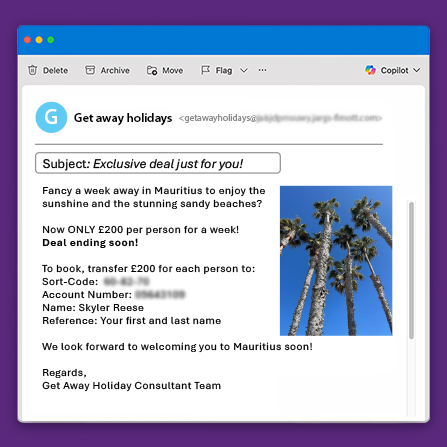
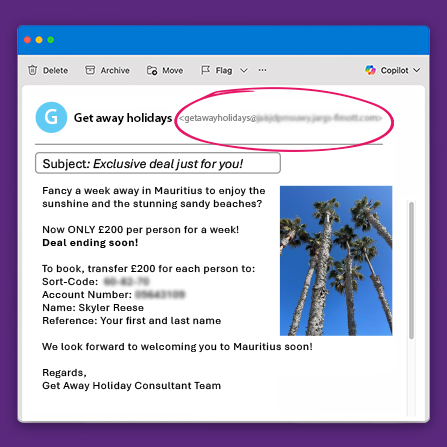
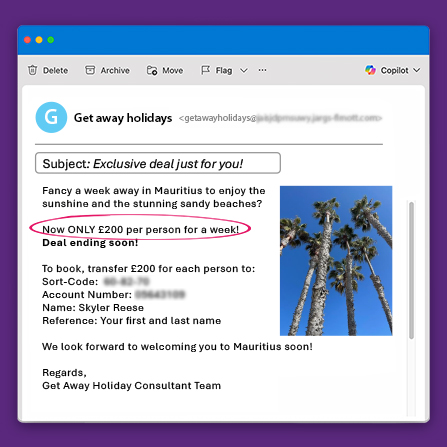
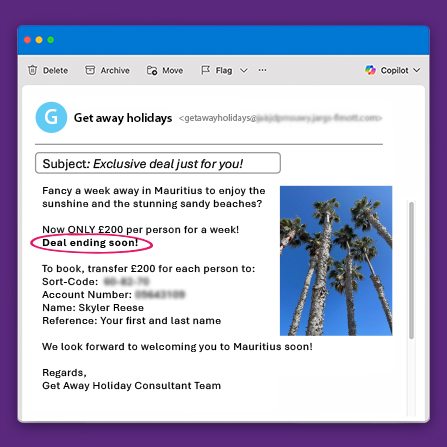
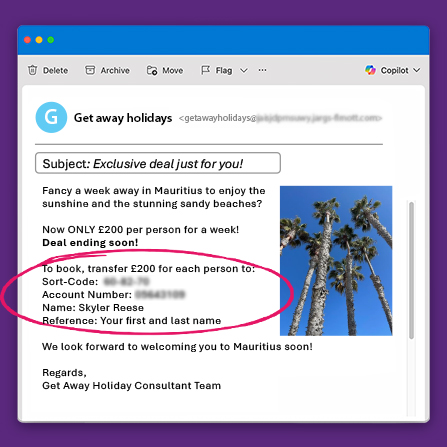
Scam email example
Click through the five steps below to see tactics commonly used in email scams.
Please call us if you think you've been scammed.
The cost of your call will depend on what phone line you're using. See our call charge information page.
Also, please note that calls may be recorded for training and monitoring purposes.
Please have your customer number and PIN ready when you call so we can deal with your call quickly. These are the same details you use to log in to Digital Banking.
Other guides to keep your money secure
Related articles
My Security Profile
Enhance your security levels.
My Security Profile is a handy tool in your mobile app. It has personalised actions for you, that are quick and simple to take.

